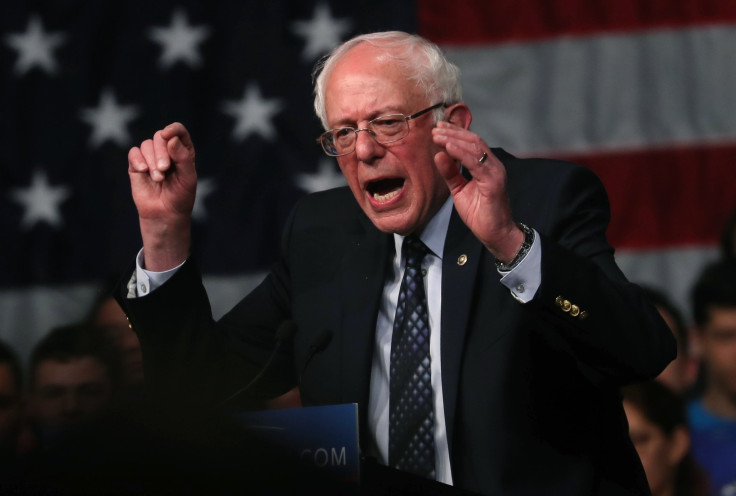Sanders’ Michigan Victory Not Explained By Anger At Clinton Trade Deals

Trying to explain Vermont Sen. Bernie Sanders' unforeseen victory in the Michigan primary, commentators cited widespread anger over free-trade policies.
Former Secretary of State Hillary Clinton's "support for trade deals that workers believe have robbed them of manufacturing jobs" proved a serious liability in Michigan for Democratic front-runner Clinton, the New York Times reported Wednesday. Huffington Post's Dave Jamieson attributed the Sanders win in large part to "resentment toward U.S. trade policy" and trade accords such as the North American Free Trade Agreement (NAFTA), enacted by Clinton's husband, President Bill Clinton.
Numerous studies show that Michigan, once the site of a booming industrial economy, has sustained major job losses in manufacturing and related industries as production has moved overseas. A March 2016 report from the Economic Policy Institute (EPI), a think tank allied with the labor movement, concluded that the United States lost more than 2 million jobs over the course of 2015 to trade with the other signatories to the Trans-Pacific Partnership (TPP), an international trade accord that was signed last month but has not yet taken effect. Michigan was found to have suffered proportionally greater job losses than any other state.
According to a CNN exit poll, voters in the Michigan Democratic primary said, by a nearly two-to-one margin, that trade with other countries destroys U.S. jobs instead of creating them. A majority of those who agreed with that sentiment voted for Sanders over Clinton.
Yet on the district level, greater trade-induced job losses did not translate into bigger margins of victory for Sanders. In Michigan's ninth congressional district — which lost 21,900 jobs to trade with TPP signatories in 2015, according to EPI — Sanders bested Clinton by a slim 2.3 points. But in the fourth district, which EPI says lost 11,800 jobs, Sanders trounced Clinton by 22.6 points. Overall, a side-by-side comparison of voting returns and the think-tank report showed no correlation between trade-induced job losses and votes for Sanders.
Comparing district returns to 2014 Census data did reveal a link between Sanders support and overall unemployment, but not the one you might expect. Parts of the state with elevated unemployment were significantly likelier to vote against Sanders and support Clinton. Skewing the average were two areas in particular: Michigan's 13th and 14th congressional districts, both of which suffer from double-digit unemployment. Sanders lost both of those districts by more than 30 points.
How to explain those losses? In addition to suffering widespread joblessness, both of those districts are majority African-American, and Clinton has consistently garnered more support than Sanders among black voters. While anti-trade sentiment may well have played a role in the outcome of the Michigan primary, those figures show that the underlying fundamentals of the primary remained fairly similar to what has been observed in other states.
Clinton supporters might take heart from that as they look ahead to other Rust Belt states, such as Ohio and Illinois, which will vote in their Democratic primaries next week. Those states have also seen their local manufacturing industries decay, in part as a result of U.S. trade policies, but voter backlash against those policies might not be enough to ensure another Sanders win.
© Copyright IBTimes 2024. All rights reserved.












